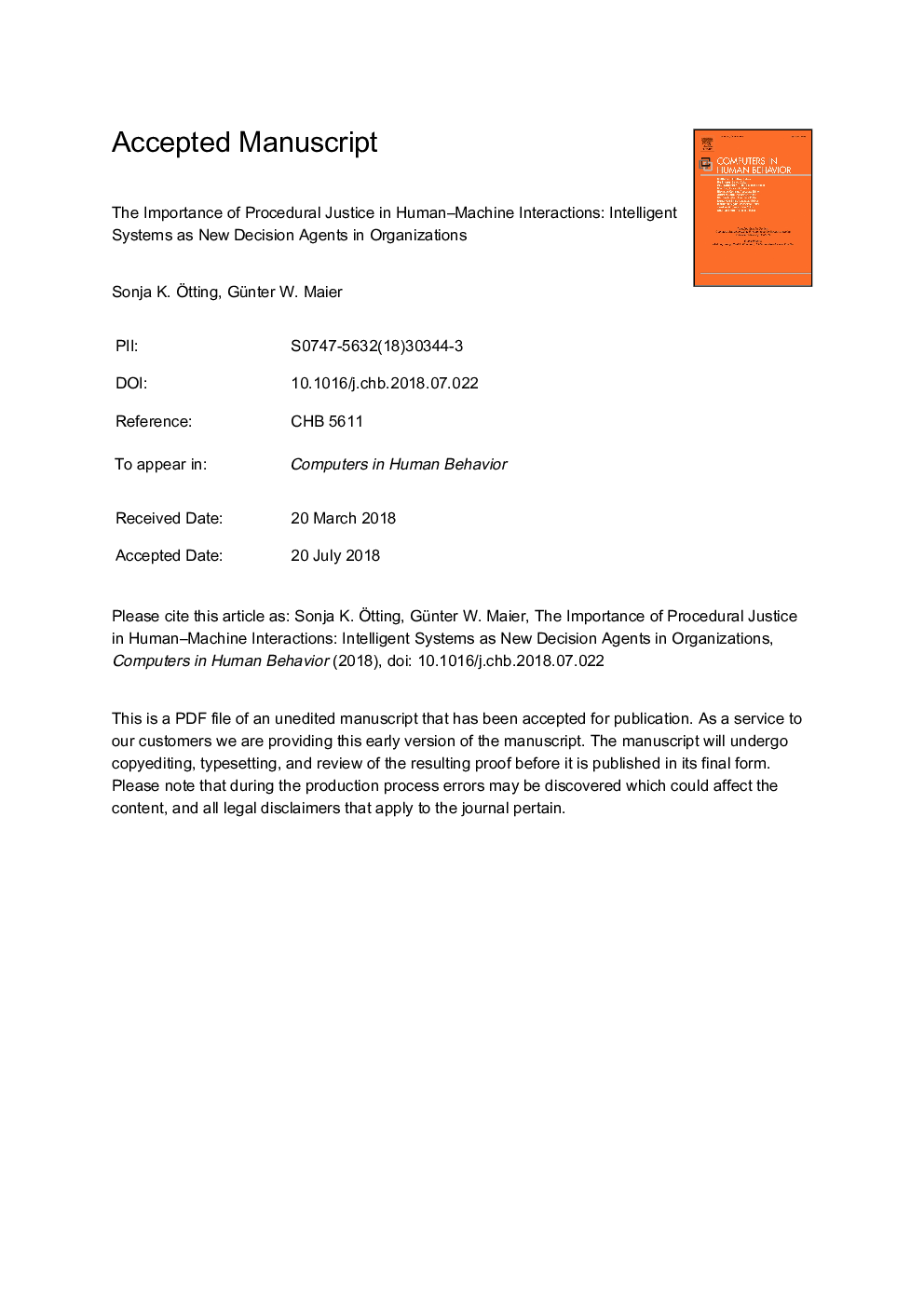| Article ID | Journal | Published Year | Pages | File Type |
|---|---|---|---|---|
| 6835636 | Computers in Human Behavior | 2018 | 53 Pages |
Abstract
In the present study, the effects of procedural justice (fair or unfair) and the type of decision agent (human, robot, or computer) on employee behavior and attitudes (e.g., job satisfaction, organizational citizenship behavior, or counterproductive work behaviors) were examined. It was predicted that the type of decision agent (or the source of justice) would moderate the relationship between procedural justice and employee behavior and attitudes, with the relationship being strongest when the decision agent is a human team leader, medium when the decision agent is a humanoid robot, and weakest when the agent is a computer system. This research question was investigated with a between-subjects design in two experiments (N1â¯=â¯149 and N2â¯=â¯145) that displayed two different decision situations in organizations (allocation of new tasks and allocation of further vocational trainings). Results of both studies showed significant effects of procedural justice on employee behavior and attitudes, confirming the importance of procedural justice at the workplace for both human and system decision agents. Furthermore, both studies failed to verify any interaction effects of procedural justice and the decision agent. This further emphasizes the importance of procedural justice in decision situations because there is no difference in reactions to procedural justice of human or system decisions. Limitations and implications for future research and the integration of justice and human-machine interaction research are discussed.
Related Topics
Physical Sciences and Engineering
Computer Science
Computer Science Applications
Authors
Sonja K. Ãtting, Günter W. Maier,
